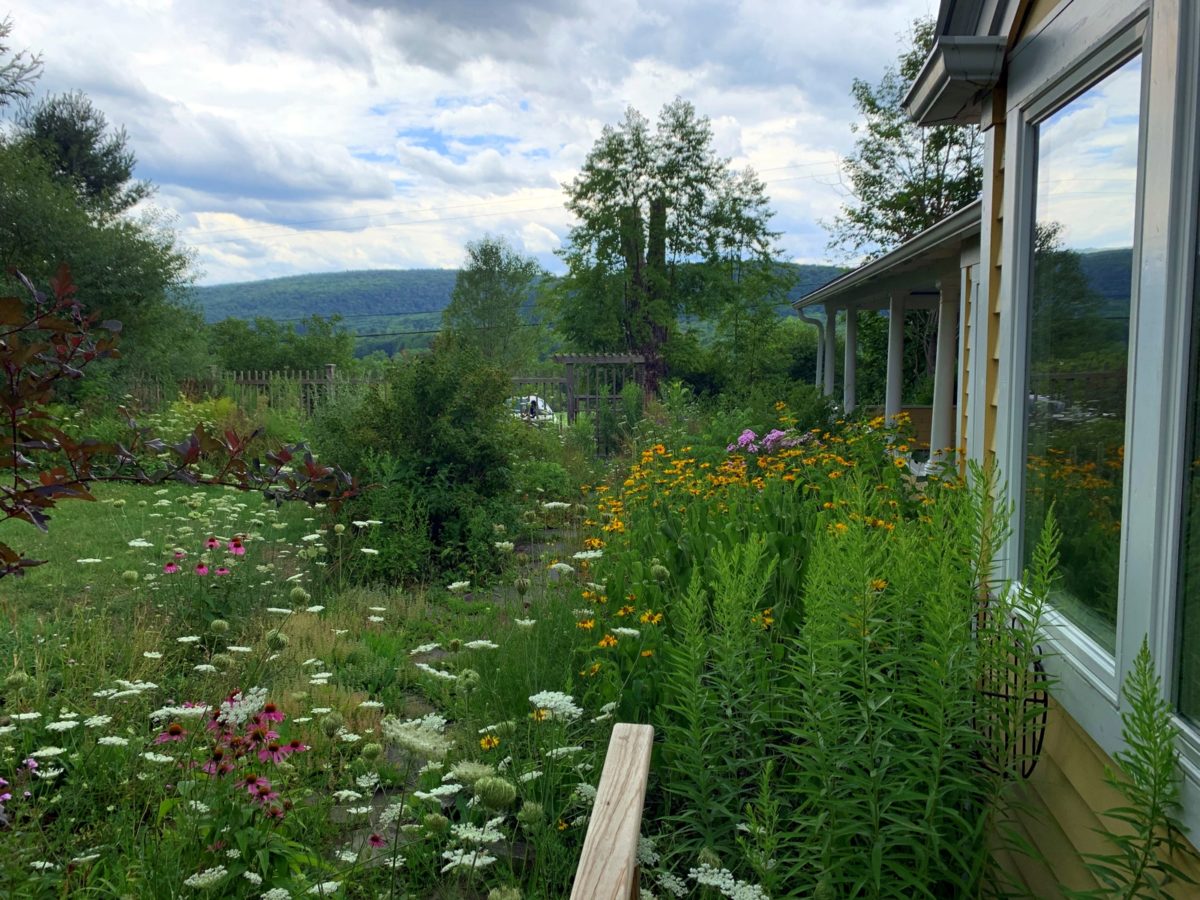The Finger Lakes Land Trust enhanced protection of 97 acres in the town of Caroline, Tompkins County—a property generously donated to the organization by community members Cornelia “Nelly” Farnum and Jack Booker.
In 2011, Nelly and Jack donated a conservation easement on their property where they shared a home for over 30 years. The property includes a steeply sloping forest with a cascading creek and a 19th century Greek Revival home surrounded by native plant gardens.
In 2019, they decided to donate the property and house to the Land Trust with the clear understanding that it would be sold to a private buyer subject to the easement. Proceeds from the sale were placed in the Land Trust’s “Opportunity Fund,” a dedicated account created by the organization to make time-sensitive acquisitions possible. In conjunction with their donation, the Land Trust agreed to retire the right to build an additional house on the land, increasing protection of a scenic hillside visible from White Church Road.
The Farnum-Booker property also lies within the Emerald Necklace, an ambitious effort to link 50,000 acres of existing public open space that extends in an arc around Ithaca—from Finger Lakes National Forest in the west to Hammond Hill and Yellow Barn State Forests in the east. These lands host 78 miles of the Finger Lakes Trail, two Audubon-designated Important Bird Areas, and several dozen Tompkins County-designated Unique Natural Areas. The property is also located within Tompkins County’s Caroline Pinnacles Unique Natural Area and in close proximity to other protected lands, including Shindagin Hollow State Forest and a Cornell Botanic Gardens natural area. The Finger Lakes Trail is easily accessed just south of the property on White Church Road.
Conservation easements are voluntary legal agreements that permanently limit future development in order to protect the land’s conservation value. Lands subject to conservation easements remain in private ownership, on local tax rolls, and available for traditional uses such as farming, forestry, and hunting.


